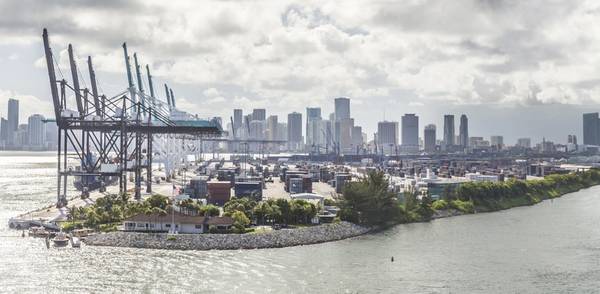Coalition for America’s Gateways and Trade Corridors executive director Elaine Nessle comments on the U.S. Department of Transportation’s funding under President Trump’s Fiscal Year 2018 Budget Blueprint.
The Coalition for America’s Gateways and Trade Corridors (CAGTC) calls on President Trump and Congress to fund the Department of Transportation’s Transportation Investments Generating Economic Recovery program, or TIGER, in Fiscal Year 2018. The program was eliminated under the President’s Fiscal Year 2018 budget blueprint America First, A Budget Blueprint to Make America Great Again, which was transmitted to Congress yesterday.
Competitive grant programs, such as TIGER and the Nationally Significant Freight and Highway Projects Program (also known as FASTLANE grants), are critical tools for transportation projects that are difficult to fund through traditional distribution methods, such as formula programs. Both programs encourage competition at the state, regional and local level to develop projects that maximize federal investment by encouraging creative financing arrangements, private sector participation, and strong non-federal matching. The TIGER program has proven its effectiveness in capitalizing on federal investments: for every $1 of federal monies distributed through the program, $3.50 is leveraged through other sources, including private funds, according to the U.S. Department of Transportation.
But, TIGER and the Nationally Significant Freight and Highway Projects Program are not interchangeable. Whereas the Nationally Significant Freight and Highway Projects Program was developed with freight-focused investment criteria, the TIGER program is available to address a multitude of mobility issues – including freight, mixed use infrastructure, and transit. In fact, in Fiscal Year 2016, just 26 percent of total TIGER funding was awarded to projects with a strong freight component.
The two programs address needs of differing size and scale, and projects that qualify under one program may not qualify under the other. With little exception, project costs must total a minimum of $100 million to be considered under the Nationally Significant Freight and Highway Projects Program; for TIGER, the minimum total project cost is $6 million in urban areas and even less for rural areas. According to the U.S. Department of Transportation, the average award size through the TIGER program is $14.5 million. By contrast, the average award under the first round of Nationally Significant Freight and Highway Projects Program – designed largely for mega-projects – is $42.2 million.
We applaud the President’s stated commitment to ‘investing in nationally and regionally significant transportation infrastructure projects,’ and encourage the Administration to fund – at an increased, robust level – competitive grant programs that support nationally and regionally significant freight infrastructure projects. The U.S. population is expected to increase 70 million by 2045, and each person uses roughly 63 tons of freight annually. Investment is needed to make this demand an opportunity, rather than a crisis.




